A Quality Differentiated Classroom Environment
Class teachers provide a stimulating and differentiated curriculum to meet the needs of all learners. Learning experiences are designed to be flexible to meet the lesson objectives and evaluated across content, process, product and environment.
In recent years, with the support of our onsite Occupational Therapist, staff have implemented movement breaks into the learning periods resulting in numerous benefits for all students including increased motivation, focus, stress reduction and ability to learn.
Progress and Ongoing Feedback
Our staff are rigorous in monitoring your child’s progress and our commitment to parents and caregivers is to inform you of our observations in an early and timely manner.
As such, the College continues to refine processes for providing parents with information regarding student progress through the release of results and feedback as they occur in the classroom setting. We believe that continuous feedback is a powerful tool that helps to identify and address problems promptly and leads to improved student performance. Parents and Caregivers will still be supplied with an end of Semester Report.
Early Intervention
Early intervention is a primary goal of the College. Speech, language, fine and gross motor and visual perception and hearing screening occurs amongst Prep students during Term 1. Screenings are undertaken by the College’s on-site speech pathologist and occupational therapist, allowing us to better identify and cater for our students’ educational needs.
Ongoing assessments of student literacy and numeracy skill development are used to assist with prioritising support for learning. This begins with students completing the Brigance Screening Tool during Prep Orientation days, followed by close monitoring with Initial Lit reviews in Prep to Year 2. Summative PAT assessments for Reading Spelling and Mathematics are used in Years 2 to Year 6 to monitor and track progress.
NAPLAN testing for students in Year 3, 5, 7 and 9 are administered as per government requirements.
 SEQTA
SEQTA

